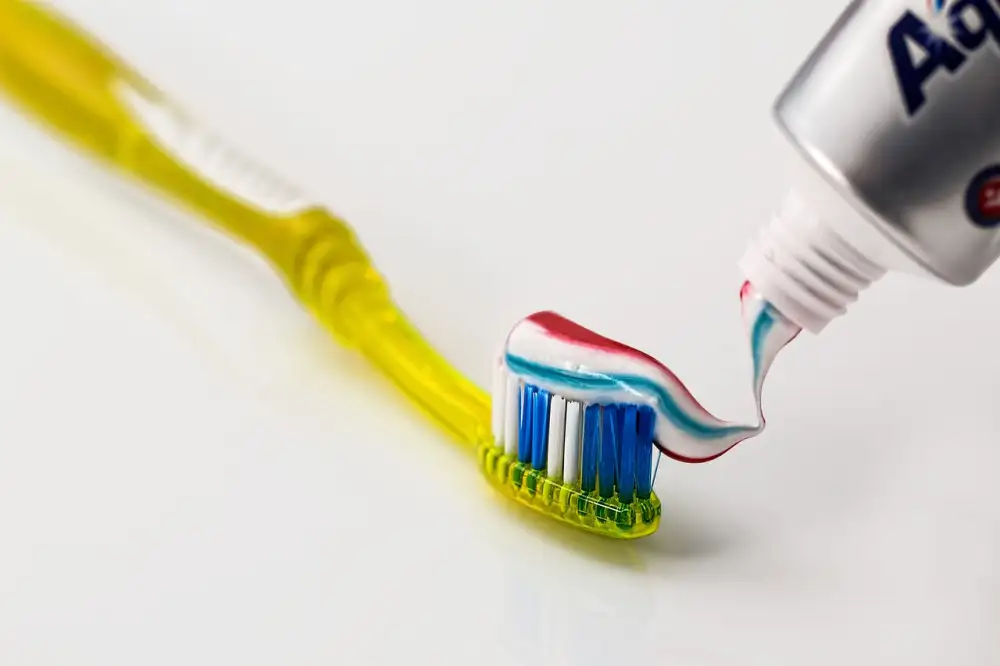Enhancing Oral Care: Discover the Best Toothbrushes for Disabled Adults

- Importance of oral hygiene for disabled adults
- Challenges faced by disabled adults in maintaining oral hygiene
- Features to consider when choosing toothbrushes for disabled adults
- Manual toothbrushes designed for disabled adults
- Electric toothbrushes suitable for disabled adults
- Benefits of using toothbrushes specifically designed for disabled adults
- Tips for caregivers in assisting disabled adults with toothbrushing
Maintaining good oral hygiene is essential for overall health, and this holds true for disabled adults as well. However, due to physical limitations or cognitive impairments, they often face challenges in performing daily tasks such as brushing their teeth. To address these difficulties, toothbrushes specifically designed for disabled adults have been developed. These toothbrushes are equipped with features that make oral care easier and more accessible, ensuring that individuals with disabilities can maintain optimal oral health. In this article, we will explore the importance of oral hygiene for disabled adults, the challenges they face in maintaining it, and the various types of toothbrushes available to enhance their oral care routine.
Importance of oral hygiene for disabled adults
Maintaining good oral hygiene is crucial for everyone, including disabled adults. Poor oral health can lead to various dental problems such as tooth decay, gum disease, and bad breath. However, disabled adults often face additional challenges in maintaining oral hygiene due to their physical limitations or cognitive impairments. Neglecting oral care can have serious consequences on their overall health and quality of life. Therefore, it is essential to emphasize the importance of oral hygiene for disabled adults and ensure that they receive proper dental care.
Challenges faced by disabled adults in maintaining oral hygiene
Disabled adults face various challenges in maintaining oral hygiene. Limited mobility and dexterity can make it difficult for them to hold and maneuver a toothbrush effectively. This can result in inadequate brushing, leading to plaque buildup, cavities, and gum disease. Additionally, individuals with cognitive disabilities may struggle with understanding the importance of oral care or following a proper brushing routine. These challenges highlight the need for toothbrushes specifically designed to accommodate the unique needs of disabled adults.
Features to consider when choosing toothbrushes for disabled adults
When choosing toothbrushes for disabled adults, there are several important features to consider. Firstly, the handle should be easy to grip and maneuver, as individuals with limited dexterity may struggle with traditional handles. Look for toothbrushes with ergonomic designs or those that have larger handles for better control.
Secondly, the bristles should be soft and gentle to prevent any discomfort or damage to sensitive gums. This is especially crucial for individuals with conditions such as gum disease or sensory issues. Additionally, some toothbrushes come with angled bristles that can reach difficult-to-access areas more effectively.
Furthermore, consider the size of the toothbrush head. A smaller head may be more suitable for individuals with limited mouth opening or those who have difficulty controlling their movements. It allows for better maneuverability and access to all areas of the mouth.
Lastly, it is essential to choose a toothbrush that is easy to clean and maintain hygiene. Look for brushes that have removable heads or those that can be sterilized easily. This helps prevent the buildup of bacteria and ensures a safe oral care routine.
By considering these features when choosing toothbrushes for disabled adults, caregivers can help promote effective oral hygiene practices and improve overall oral health outcomes.
Manual toothbrushes designed for disabled adults
Manual toothbrushes designed for disabled adults are specifically crafted to address the unique needs and challenges faced by individuals with disabilities. These toothbrushes feature innovative designs that make brushing easier and more comfortable for users. Some manual toothbrushes have larger handles, which provide a better grip for those with limited dexterity or strength in their hands. The handles may also be ergonomically shaped to fit comfortably in the hand, reducing strain and fatigue during brushing. Additionally, the bristles of these toothbrushes are often softer and more flexible, ensuring gentle yet effective cleaning without causing discomfort or irritation. These specialized manual toothbrushes can significantly improve oral hygiene for disabled adults by making brushing easier and more accessible.
Electric toothbrushes suitable for disabled adults
Electric toothbrushes are a great option for disabled adults who may have difficulty with manual brushing. These toothbrushes are designed to provide a more thorough and effective cleaning experience. They typically have rotating or vibrating bristles that can remove plaque and food particles more efficiently than manual brushing.
One key advantage of electric toothbrushes is their ease of use. Disabled adults with limited dexterity or mobility can find it challenging to maneuver a manual toothbrush properly. Electric toothbrushes, on the other hand, require minimal effort as the brush head does most of the work.
Another benefit is the built-in timers found in many electric toothbrush models. These timers ensure that users brush for the recommended two minutes, which is often difficult for disabled adults to achieve with a manual toothbrush. This feature helps maintain oral hygiene by ensuring thorough cleaning of all teeth surfaces.
Furthermore, electric toothbrushes often come with different brush head options, including those specifically designed for sensitive teeth or gum problems. This allows individuals with specific oral health needs to find a brush head that suits their condition and provides optimal care.
It's important to note that not all electric toothbrushes are suitable for every disabled adult. Caregivers should consider factors such as grip size, handle shape, and button placement when selecting an electric toothbrush for their loved ones. Consulting with a dentist or oral healthcare professional can help determine the most appropriate model based on individual needs.
In conclusion, electric toothbrushes offer several advantages for disabled adults in maintaining good oral hygiene. Their ease of use, built-in timers, and customizable brush heads make them an excellent choice. By using these specially designed brushes, caregivers can promote better oral health outcomes for disabled adults and enhance their overall quality of life.
Benefits of using toothbrushes specifically designed for disabled adults
Using toothbrushes specifically designed for disabled adults offers several benefits. Firstly, these toothbrushes are ergonomically designed to provide a comfortable grip, making it easier for individuals with limited dexterity or mobility to hold and maneuver the brush effectively. This helps ensure thorough cleaning of teeth and gums.
Secondly, toothbrushes for disabled adults often have specialized bristle configurations. Some brushes have extra-soft bristles that are gentle on sensitive gums, while others have angled bristles that can reach difficult-to-access areas in the mouth. These features enhance plaque removal and reduce the risk of gum disease and tooth decay.
Furthermore, some toothbrushes designed for disabled adults incorporate innovative features such as extended handles or bendable necks. These adaptations enable individuals with physical disabilities to reach all areas of their mouth comfortably, promoting independence in oral care routines.
Moreover, certain toothbrushes may include additional functionalities such as built-in timers or pressure sensors. Timers help individuals maintain the recommended brushing time of two minutes, while pressure sensors alert users if they are applying excessive force during brushing, preventing potential damage to teeth and gums.
By using toothbrushes specifically designed for disabled adults, individuals can improve their oral health outcomes and maintain a higher level of oral hygiene. These specialized tools address the unique challenges faced by disabled adults in maintaining proper oral care and contribute to overall well-being.
Tips for caregivers in assisting disabled adults with toothbrushing
1. Communication: Establish clear and effective communication with the disabled adult to understand their preferences and needs during toothbrushing.
2. Adapt the environment: Create a comfortable and accessible environment for toothbrushing. Use a chair or bed that provides support, and ensure good lighting.
3. Assistive devices: Consider using assistive devices such as adapted handles or grips to make it easier for the disabled adult to hold the toothbrush.
4. Proper positioning: Position the disabled adult in a way that allows easy access to their mouth. This may involve adjusting their head position or using pillows for support.
5. Gentle technique: Use gentle and controlled brushing techniques, focusing on all areas of the mouth including teeth, gums, tongue, and cheeks.
6. Patience and encouragement: Be patient and provide positive reinforcement throughout the process. Encourage independence where possible but be prepared to assist when needed.
7. Regular dental check-ups: Schedule regular dental visits to monitor oral health and address any issues promptly.
8. Stay informed: Keep up-to-date with new techniques, tools, and resources available for assisting disabled adults with oral care.
By following these tips, caregivers can play a crucial role in promoting proper oral hygiene for disabled adults and ensuring their overall well-being.
In conclusion, maintaining good oral hygiene is crucial for the overall health and well-being of disabled adults. However, they often face challenges in effectively cleaning their teeth due to physical limitations or cognitive impairments. The use of suitable toothbrushes specifically designed for disabled adults can greatly enhance their oral care routine.
By considering features such as ergonomic handles, soft bristles, and adaptive designs, manual toothbrushes can provide better grip and control for individuals with limited dexterity. Electric toothbrushes offer additional benefits, including automated brushing motions and built-in timers that ensure thorough cleaning.
Using toothbrushes designed for disabled adults not only improves their ability to maintain oral hygiene but also helps prevent dental issues such as cavities, gum disease, and bad breath. These specialized toothbrushes are tailored to meet the unique needs of disabled individuals, making oral care more accessible and comfortable.
Caregivers play a crucial role in assisting disabled adults with toothbrushing. They should be knowledgeable about proper techniques and be patient and understanding while providing support. Regular dental check-ups should also be encouraged to address any underlying dental problems.
In conclusion, by choosing suitable toothbrushes and providing appropriate assistance, we can promote optimal oral health for disabled adults. This will not only improve their quality of life but also contribute to their overall well-being. Let's prioritize oral care for this vulnerable population and ensure they have access to the best tools available.
Published: 25. 02. 2024
Category: Health



